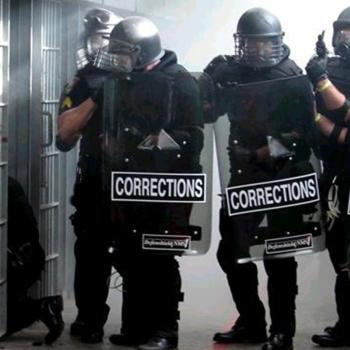So asks Mariann Budde, my friend and the Episcopal bishop of Washington, D.C. to Wednesday’s post, Why Liberal Christianity (Too Often) Sucks. There were lots of great comments to that post, and some other questions that I hope to answer, but Mariann’s was the most pointed, and it’s one I want to respond to.
At the end of that post, I wrote,
Finally, mainline Christianity is committing suicide, plain and simple. By gathering every summer at their national conventions and killing each other with friendly fire, they are rapidly precipitating their own demise. No one gives a shit about the survival of your denomination.
By “no one,” I don’t mean the people who go to those meetings and fight and argue and vote. Those people care. But they can’t see the forest for the trees. No one back at home cares.
No. One.
So the faster that progressive Protestants can give up on their denominations — like conservative Protestants did 20 years ago — the more likely they can turn things around before it’s too late.
I really do believe what I wrote there. I may be prone to overstatement, but I think that my predictions about the death of progressive Christianity being precipitated, in part, by denominational infighting is profoundly accurate.
I’ve said it repeatedly, and I’ve written it in books: Bureaucracy is bad for the gospel. And denominations are nothing if not bureaucracies.
Now, I have to swallow hard before I stick with that line of reasoning when questioned by Mariann. She’s one of the good guys, in my estimation. She also has a lot of power, insofar as Episcopal bishops have power — actually, they don’t have much, compared to Methodist and Catholic bishops. But she does have a bully pulpit. In other words, she has the potential to do some real good for the gospel in her position.
Nevertheless, all the good that she can do cannot possibly tip the scales of dysfunction in her denomination or any other.
That’s the problem with bureaucracies: they’re full of good people, like Mariann. But the total is more than the sum of its parts.
The other weird thing about bureaucracies — something that can be verified by reading any one of a number of books on modern bureaucracy — is that they foster a level of loyalty that is completely irrational. (Just see the comments that are sure to follow this post as an example.)
Bureaucracies do not deserve your loyalty. No one is loyal to the DMV. We respect it, and those of us who drive cars live under its auspices. But you’d be hard-pressed to find someone willing to raise their voice in defense of the DMV. That’s because the DMV is functional, but it’s not an ideal.
Democracy is an ideal. The DMV is a way that our democracy works on a daily basis. So, you might wonder, isn’t a denomination simply the Christian version of the DMV? That is, the gospel is our ideal and the denomination is that way we make it work.
Not really. First of all, the gospel is a higher ideal than democracy, and so it demands that we push harder against those things that grow up around it.
And secondly, we have a choice.
A few weeks ago, I was at a meeting sitting next to a guy who told me that he works at the Pentagon. He went on to gripe about how many of his days he spends in meetings about meetings and filling out report after report. I asked him, “What if we could wipe out all of the tradition and bureaucracy in the American military and start from scratch?”
“It would be amazing,” he said, “And we’d have a far better military defense than we have now.”
The military in America can’t change.
The church can. There’s nothing stopping a revolution in the American church, except American Christians.















